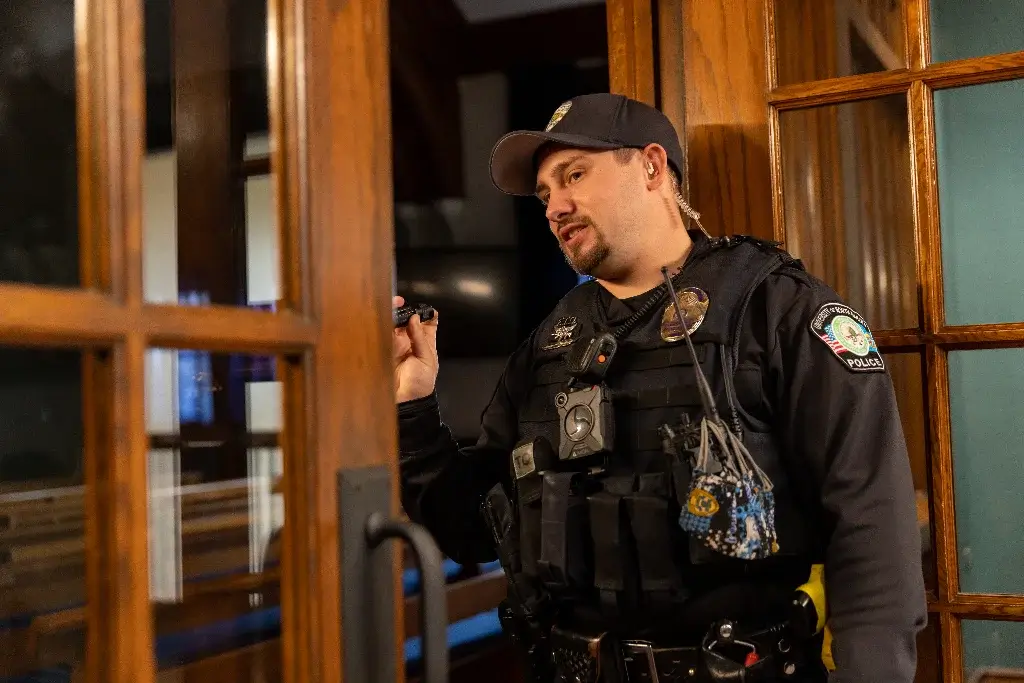
How to Become a DEA Agent: Requirements and Application Process
Narcotics and controlled substances have long been a controversial subject, sparking debates about public health and safety.
Request Information
Over the decades, numerous laws have been enacted to combat drug abuse and its associated societal harms. The most significant reinforcement of these efforts occurred during the presidency of Richard Nixon in 1970 when the war on drugs was declared. This marked the beginning of an intensified focus on drug control policies and law enforcement measures. Since then, the number of acts aimed at controlling drug abuse has increased, but this war cannot be won by legislation alone.
So, there is a dedicated force of professionals tasked with enforcing these drug laws: Drug Enforcement Administration (DEA) agents. Their work is key in combating drug-related crimes. If you are interested in joining this career path or learning more about it, keep reading as we explore how to become a DEA agent.
What is a DEA Special Agent?
A DEA Special Agent is a law enforcement officer employed by the Drug Enforcement Administration, a federal agency under the United States Department of Justice. DEA agents are tasked with enforcing the laws and regulations for controlled substances in the United States. Their primary role involves investigating drug trafficking and related crimes, which includes identifying and dismantling drug trafficking organizations, intercepting drug shipments, and apprehending those involved in the illegal drug trade.
DEA agents work both domestically and internationally, often collaborating with other law enforcement agencies to track and disrupt the activities of drug cartels and criminal networks. Their responsibilities also include conducting undercover operations, executing search and arrest warrants, and gathering intelligence on drug operations. Additionally, at times, they are involved in educational and prevention efforts, aiming to reduce the demand for illegal drugs through community outreach and public awareness programs.
Requirements to Become a DEA Special Agent
In order to be eligible to apply for the role of a DEA agent, there are numerous requirements that one must fulfill. To see if you meet these criteria, review the following prerequisites carefully.
Minimum Requirements
Firstly, prospective DEA agents must meet the agency's minimum eligibility criteria, which include the following:
- Must be at least 21 years old but no older than 36 years old at the time of appointment. Exceptions apply for preference-eligible veterans and individuals who have served in Federal civilian law enforcement retirement-covered positions. This allows for adjustments based on prior service to meet the maximum entry age limit of less than 37 years.
- Hold U.S. citizenship.
- Possess a valid U.S. driver's license.
- Be willing to relocate anywhere in the U.S.
- Ability to obtain and retain a Top-Secret security clearance.
- Be in excellent physical condition.
- Be willing and able to carry and handle firearms.

Physical/Medical Requirements
Working for the DEA is a strenuous job that demands physical mobility and strength. Aspiring agents must meet specific physical and medical prerequisites to ensure they can perform their duties effectively and safely. These requirements include:
- Sharp vision and hearing: DEA agents need excellent vision and hearing to observe and interpret details accurately during investigations, surveillance, and operations. This sensory acuity is necessary to identify suspects, read body language, and detect potential threats.
- Intact and functional limbs: An agent's arms, hands, legs, and feet must be sufficiently intact and functional. This ensures they can handle various physical tasks, from conducting searches to pursuing suspects. Applicants who are unable to meet this requirement can request a medical review process to determine their eligibility.
- Manual dexterity: Free motion of the fingers, wrists, elbows, shoulders, hips, and knees is crucial. This flexibility allows agents to perform tasks requiring fine motor skills, such as handling firearms, operating vehicles, and using technical equipment.
- Mental and emotional stability: DEA agents must be able to perform their duties effectively, even under stressful and dangerous conditions. They must maintain composure, make quick decisions, and manage high-pressure situations without compromising their judgment or performance.
- Absence of hazardous physical conditions: Candidates must be free from any physical conditions that could make them a hazard to themselves or others. This includes any medical issues that might impair their ability to perform essential job functions safely and efficiently.
Competencies Required
Next, candidates must possess the following skills and qualities:
- Written and oral communication capabilities
- Attention to detail/memory
- Decision-making/judgment
- Interpersonal skills
- Integrity/honesty
- Flexibility
- Problem-solving
- Self-management
- Teamwork
These competencies will collectively help DEA agents to perform their duties effectively.
Education Requirements
Candidates can be considered eligible if they hold at least one of the following degrees:
- A bachelor's degree with a minimum GPA of 2.95
- A master's degree
- A Juris Doctor (J.D.) or Bachelor of Laws (LL.B.)
These educational requirements ensure that candidates have a strong academic foundation and are prepared for the job's demands. Higher education demonstrates a candidate's ability to engage in critical thinking, conduct thorough research, and maintain discipline—skills essential for a DEA agent. Various types of experience can be substituted, as noted on the DEA's webpage and in the next section.
Skills and Experience Requirements
Candidates who don't fulfill the educational qualifications can still be considered for the role if they possess relevant skills and experience. They should have one or more of the following:
- Experience aiding in investigating alleged or suspected legal violations: This includes participation in collaborative venues, briefings, meetings, and conferences across multiple agencies or organizations.
- Have over three years of substantial work experience and special skills: This experience should be in specialized areas such as piloting, maritime operations, accounting, auditing, military or technical roles, mechanical fields including information systems, telecommunications, engineering, or fluency in a foreign language (subject to verification). Additionally, candidates should hold a bachelor's degree or higher, with relevant coursework aligned with these specialized skills, although no minimum GPA is required.
How to Become a DEA Special Agent: Application Process
The hiring process at the DEA can be lengthy, often taking up to 12 months due to several steps involved. So, let's see what you'll have to do in order to secure such a position:
1. Contact the Local DEA Recruitment Office
First, you must visit the DEA's recruitment page to find the nearest recruitment office and fill out the special agent applicant intake form online. Once submitted, the local DEA recruitment office will contact you for further guidance.
2. Undergo a Qualifications Review
A recruitment coordinator will verify your application's documents and other details to ensure you meet the minimum qualifications and have the required experience for a DEA special agent role.
3. Complete a Written Assessment and Panel Interview
If you pass the qualifications review, you will be scheduled for written and oral tests. The written assessment evaluates your text communication skills, while the panel interview assesses your oral communication abilities.
4. Pass a Drug Test
You must undergo a drug test to detect any substance abuse. The DEA disqualifies individuals who have used marijuana in the past three years or any other illegal drugs within ten years. Prior drug use may be considered on a case-by-case basis.
5. Undergo a Medical Examination
Applicants must pass a medical examination, including tests for hearing and eyesight, conducted by DEA-approved medical personnel.
6. Take the Physical Task Assessment
The DEA's physical task assessment (PTA) includes four activities: sit-ups, a 300-meter sprint, push-ups, and a 1.5-mile run. You are allowed a 10-minute break after each activity. The PTA administrator will report your performance to the recruitment coordinator.
7. Pass the Polygraph Exam
You may undergo a polygraph exam where you will answer yes-or-no questions about your educational background, skills, and personal experiences. It is crucial to be completely honest during this test.
8. Complete a Psychological Assessment
A psychologist will interview you to detect any mental health conditions or personality traits that could impact your job performance.
9. Pass the Full-field Background Investigation
A DEA-approved background investigation, likely conducted by the Diplomatic Security Service (DSS), will verify your identity, history, and qualifications. Passing this background check qualifies you for a top-secret security clearance.
10. Receive the Decision
Successful applicants will receive an offer of employment from the DEA. Accepted candidates then join other new agents for an intense 18-week training program at the DEA Academy in Quantico, Virginia.
Conclusion
Given the complexity and high stakes of DEA agents' work, it's no surprise that the requirements to join their ranks are stringent, and the application process is thorough. These measures ensure that only the most capable, dedicated, and trustworthy individuals are entrusted with this responsibility.
For those aspiring to join these professionals, fulfilling one of the key prerequisites—obtaining the necessary education—can be accomplished through UND's comprehensive degree programs. UND offers educational pathways at all levels, including a B.S. in Criminal Justice Studies, a Master's in Criminal Justice Studies, and a J.D. Law Degree. Moreover, the Accelerated Law Degree program allows students to complete their education more quickly, helping them embark on their careers sooner.
Become a guardian of justice and start your journey with UND today—because the best protectors of our society are forged through dedication and top-notch education.
FAQs
DEA agents earn an average salary of $76,795 per year.
DEA agents work in various environments, including office settings, field operations, and undercover assignments. They may be involved in surveillance, conducting raids, or participating in lengthy investigations, often requiring travel and irregular hours.
The DEA Academy training program is 18 weeks long.